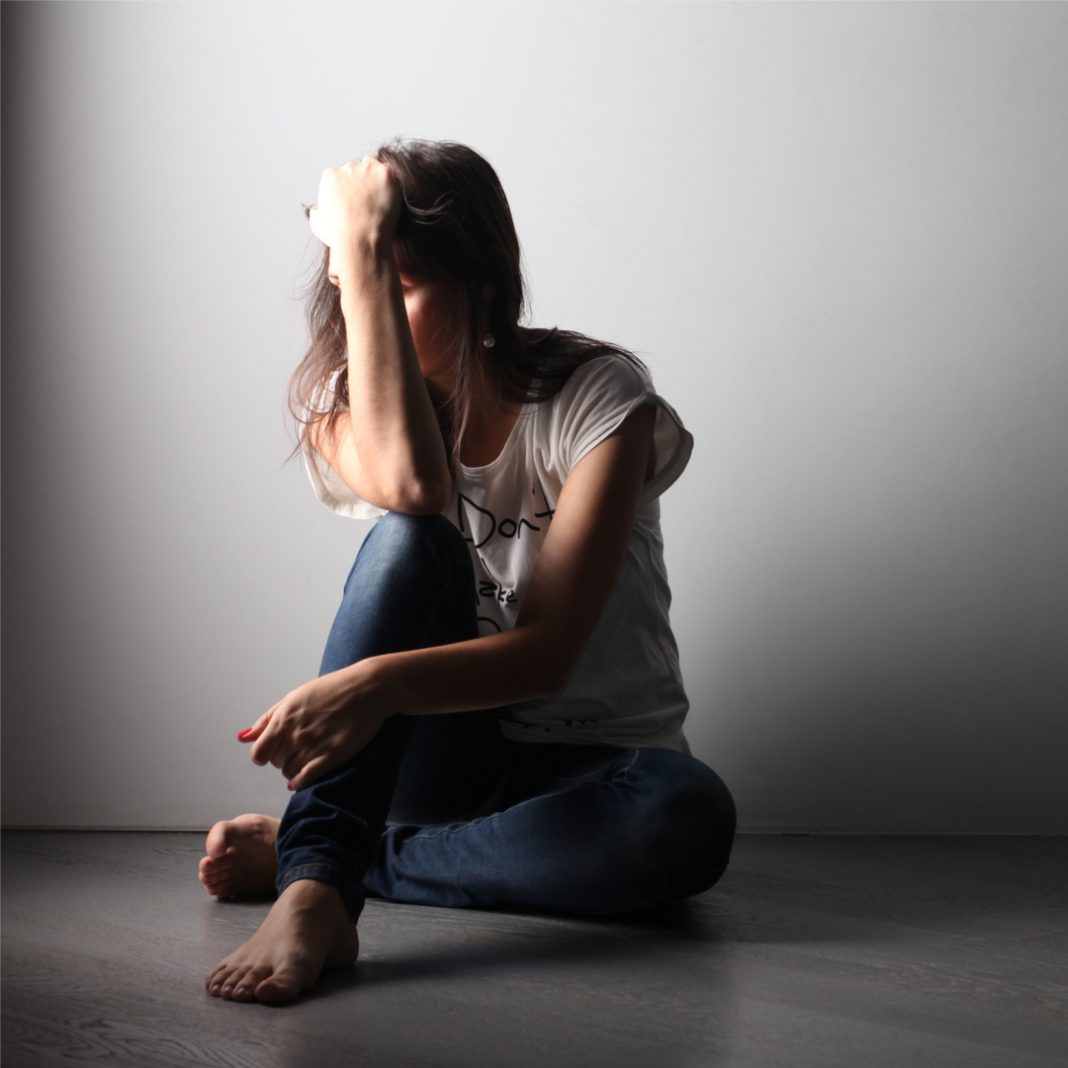That the pandemic affected all of us as seniors has been established. But what about our young ones? Did you know that more than one in seven adolescents aged 10–19 is estimated to live with a diagnosed mental disorder? By UNICEF officially acknowledging this serious problem, we can all start waking up to support the children of today, to lead empowered lives and secure their future.
A Reality Check
Children and young people in India could feel the impact of COVID-19 on their mental health and well-being for many years to come, UNICEF warned in its flagship report launched early October 2021.
In nearly every part of the world, be it rich or poor countries, mental health conditions – and the lack of caring responses – cause significant suffering for children and young people and are a top cause of death, disease and disability, especially for older adolescents.
An estimated 13 per cent of adolescents aged 10–19 is estimated to live with a diagnosed mental disorder.
In the State of the World’s Children 2021 – The State of the World’s Children 2021; On My Mind: promoting, protecting and caring for children’s mental health; UNICEF took a comprehensive look at the mental health of children, adolescents and caregivers in the 21st century. According to the report, the COVID-19 pandemic has had a significant impact on children’s mental health.
The Indian Context
“Children in India have been through a challenging time living through the risks and restrictions posed by the pandemic. Nothing could have prepared them for the onslaught of the second wave of the pandemic that hit India earlier this year. Children witnessed suffering and uncertainties that no child should have to see. Being away from family, friends, classrooms and play caused isolation and anxiety. Children have not only been living an emotional tragedy, many are also at a higher risk of neglect and abuse,” said UNICEF India Representative Dr. Yasmin Ali Haque. “What we know about the mental health impact of the pandemic on children is just the tip of the iceberg.
We need to support sound professional intervention for our children’s mental health in India.
Children in India seem reticent to seek support for mental stress, according to a survey conducted by UNICEF and Gallup in early 2021 with 20,000 children and adults in 21 countries.
Only 41 per cent of young people between 15 -24 years of age in India said that it is good to get support for mental health problems, compared to an average of 83 per cent for 21 countries.
In fact, India was the only one of 21 countries where only a minority of young people felt that people experiencing mental health issues should reach out to others. In every other country, a majority of young people (ranging from 56 to 95 per cent) felt that reaching out was the best way to deal with mental health issues.
The survey findings, which are previewed in The State of the World’s Children 2021, also found that around 14 per cent of 15 to 24-year-olds in India, or one in seven reported often feeling depressed or having little interest in doing things.
Children’s mental health during COVID-19
The report notes that as the COVID-19 Pandemic heads into its third year, the impact on children and young people’s mental health continues to weigh heavily. Through the pandemic, children have had limited access to support from social services due to lockdown measures.
The disruption to routines, education, recreation, as well as concern for family income and health, is leaving many young people feeling afraid, angry, and concerned for their future.
According to data from UNESCO, over 286 million children up to grade 6 were out of school in India between 2020-2021.
UNICEF’s rapid assessment in 2021 found that only 60 per cent could access digital classrooms. Many would not be able to continue their education.
Children feel that the pandemic had interrupted their schooling and impacted their education and career aspirations, which left them feeling depressed and angry.
The National Commission for Women received an overwhelming number of complaints alleging domestic abuse – indicating that the children in such households suffer immense trauma that affects their mental health.
Children’s mental health issues started even before the COVID-19 pandemic
The report notes that even before the COVID-19 crisis, children and young people carried the burden of mental health conditions without significant investment in addressing them.
According to the latest available estimates, more than one in seven adolescents aged 10–19 is estimated to live with a diagnosed mental disorder globally. Of these, South Asia had the highest numbers of adolescents with mental disorders.
In India, children with mental health disorders are mostly undiagnosed and hesitant in seeking help or treatment.
According to the Indian Journal of Psychiatry in 2019, even before the pandemic, at least 50 million children in India were affected with mental health issues; 80 – 90 per cent have not sought support.
Meanwhile, wide gaps persist between mental health needs and mental health funding. India has spent only 0.05 percent of its health budget annually on mental health, according to Indian Journal of Psychiatry 2017.
The mammoth cost to society
Diagnosed mental disorders, including ADHD, anxiety, autism, bipolar disorder, conduct disorder, depression, eating disorders, intellectual disability, and schizophrenia, can harm children and young people’s health, education, life outcomes, and earnings.
While the impact on children’s lives is incalculable, according to the World Health Organization, the economic loss due to mental health conditions between 2012-2030 is estimated to be USD 1.03 trillion in India, according to WHO 2020.
Protective factors are critical
The report notes that a mix of factors have led to this serious situation:
- Genetics
- Experience And Environmental Factors
- Parenting
- Schooling
- Quality Of Relationships
- Exposure To Violence And / Or Abuse
- Discrimination
- Poverty
- Humanitarian Crises
- Health Emergencies Such As COVID-19
…key factors that shape and effect children’s mental health throughout their lifetime.
The State of the World’s Children 2021 calls on governments, and public and private sector partners, to promote mental health for all children, adolescents and caregivers, protect those in need of help, and care for the most vulnerable, including:
- Urgent investment in child and adolescent mental health across sectors, not just in health, to support a whole-of-society approach to prevention, promotion and care.
- Urgent investment in strategies to promote good mental health including prevention of gender-based and other forms of violence
- Integrating interventions across health, education and social protection sectors – including parenting programmes and ensuring schools support mental health
- Breaking the silence surrounding mental illness, through addressing stigma and promoting better understanding of mental health.
What can we do?
While protective factors, such as loving caregivers, safe school environments, and positive peer relationships can help reduce the risk of mental disorders, the report warns that significant barriers, including stigma and lack of funding, are preventing too many children from experiencing positive mental health or accessing the support they need.
“In India, we need to break the stigma of talking about mental health and seeking support so that children can have better life outcomes. We must change the way we view mental health,” added Dr Yasmin Haque. “For children who are isolated and traumatised, we must make sure there is better understanding to maximize every child’s potential.”
A wake up call to all senior adults – to us.
That we not push our children’s problems and their choice of coping mechanisms, under the carpet, pretending that they don’t exist.
That we not compare how our life was when we were being raised by our parents, and how difficult it was for us.
That we empathise and accept. We try to put ourselves in their shoes and support them with love, wisdom, nurturing and professional care, to help them cope with the severe traumas they face, while not turning a blind eye.
Observe. If you have been noticing something’s (motivation, quality of nutrition, child – like joy etc.) been amiss, it’s time to get truly connected, communicate authentically, and get our young ones the help they need.




